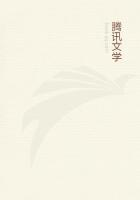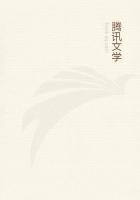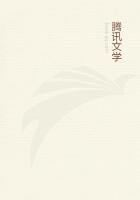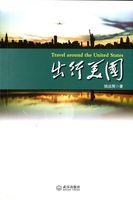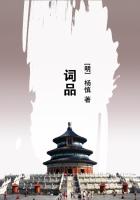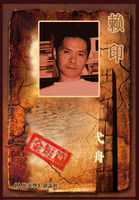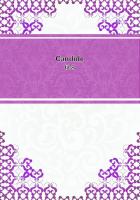It was a rude shanty of boards and rough boulders, half burrowing in one of the largest mounds of earth and gravel, which had once represented the tailings or refuse of the abandoned Indian Spring Placer. In fact it was casually alleged by some that Uncle Ben eked out the scanty "grub wages," he made by actual mining, in reworking and sifting the tailings at odd times--a degrading work hitherto practised only by Chinese, and unworthy the Caucasian ambition. The mining code of honor held that a man might accept the smallest results of his daily labor, as long as he was sustained by the prospect of a larger "strike," but condemned his contentment with a modest certainty. Nevertheless a little of this suspicion encompassed his dwelling and contributed to its loneliness, even as a long ditch, the former tail-race of the claim, separated him from his neighbors. Prudently halting at the edge of the wood, Johnny saw his resplendent vision cross the strip of barren flat, and enter the cabin with Uncle Ben like any other mortal. He sat down on a stump and awaited its return, which he fondly hoped might be alone! At the end of half an hour he made a short excursion to examine the condition of a blackberry bramble, and returned to his post of observation. But there was neither sound nor motion in the direction of the cabin. When another ten minutes had elapsed, the door opened and to Johnny's intense discomfiture, Uncle Ben appeared alone and walked leisurely towards the woods. Burning with anxiety Johnny threw himself in Uncle Ben's way. But here occurred one of those surprising inconsistencies known only to children. As Uncle Ben turned his small gray eyes upon him in a half astonished, half questioning manner, the potent spirit of childish secretiveness suddenly took possession of the boy. Wild horses could not now have torn from him that question which only a moment before was on his lips.
"Hullo, Johnny! What are ye doin' here?" said Uncle Ben kindly.
"Nothin'." After a pause, in which he walked all round Uncle Ben's large figure, gazing up at him as if he were a monument, he added, "Huntin' blackberrieth."
"Why ain't you over at the collation?"
"Ruperth there," he answered promptly.
The idea of being thus vicariously present in the person of his brother seemed a sufficient excuse. He leap-frogged over the stump on which he had been sitting as an easy unembarrassing pause for the next question. But Uncle Ben was apparently perfectly satisfied with Johnny's reply, and nodding to him, walked away.
When his figure had disappeared in the bushes, Johnny cautiously approached the cabin. At a certain distance he picked up a stone and threw it against the door, immediately taking to his heels and the friendly copse again. No one appearing he repeated the experiment twice and even thrice with a larger stone and at a nearer distance. Then he boldly skirted the cabin and dropped into the race-way at its side. Following it a few hundred yards he came upon a long disused shaft opening into it, which had been covered with a rough trap of old planks, as if to protect incautious wayfarers from falling in. Here a sudden and inexplicable fear overtook Johnny, and he ran away. When he reached the hotel, almost the first sight that met his astounded eyes was the spectacle of the paragon, apparently still in undisturbed possession of all his perfections--driving coolly off in a buggy with a fresh companion.
Meantime Mr. Ford, however touched by the sentimental significance of the celebration, became slightly wearied of its details. As his own room in the Eureka Hotel was actually thrilled by the brass band without and the eloquence of speakers below, and had become redolent of gunpowder and champagne exploded around it, he determined to return to the school-house and avail himself of its woodland quiet to write a few letters.
The change was grateful, the distant murmur of the excited settlement came only as the soothing sound of wind among the leaves. The pure air of the pines that filled every cranny of the quiet school-room, and seemed to disperse all taint of human tenancy, made the far-off celebrations as unreal as a dream. The only reality of his life was here.
He took from his pocket a few letters one of which was worn and soiled with frequent handling. He re-read it in a half methodical, half patient way, as if he were waiting for some revelation it inspired, which was slow that afternoon in coming. At other times it had called up a youthful enthusiasm which was wont to transfigure his grave and prematurely reserved face with a new expression.
To-day the revelation and expression were both wanting. He put the letter back with a slight sigh, that sounded so preposterous in the silent room that he could not forego an embarrassed smile. But the next moment he set himself seriously to work on his correspondence.
Presently he stopped; once or twice he had been overtaken by a vague undefinable sense of pleasure, even to the dreamy halting of his pen. It was a sensation in no way connected with the subject of his correspondence, or even his previous reflections--it was partly physical, and yet it was in some sense suggestive. It must be the intoxicating effect of the woodland air. He even fancied he had noticed it before, at the same hour when the sun was declining and the fresh odors of the undergrowth were rising. It certainly was a perfume. He raised his eyes. There lay the cause on the desk before him--a little nosegay of wild Californian myrtle encircling a rose-bud which had escaped his notice.

